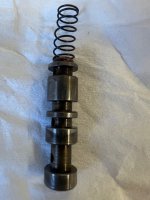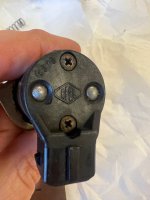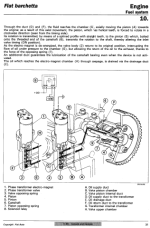Nodnolmick
Member
The first thing I did was replace the oil and filter which made no difference at all, I did think about sourcing an oil pump so that when I get stuck into it I have one to hand, it could be a blocked oilway or something but I'm thinking that if the pressure was that low when revving I would have other issues or have seen the oil light at tickover by now but it's given me a quick and easy idea to put an airline down the oil passage under the solenoid




